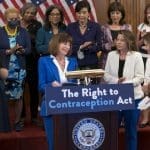I am an ER doctor, and coronavirus misinformation is making my job harder
An emergency department physician explains why patients must listen to experts.

These last few months have been difficult, and, as states begin to reopen, the next few months will undoubtedly be the same. A constantly evolving global pandemic of a novel virus will do that, and through this lens, our ability to parse fact from fiction has been tested.
As a physician, I am concerned about some in Congress and the media spewing chaotic and contradictory information about the novel coronavirus, seeking to make villains of our public health experts and even politicizing guidelines on wearing protective masks. These efforts are not just cynical politics; they are impacting our ability to make good decisions while fighting this virus.
A quote shared by many emergency physicians to trainees on their first shifts is, “At a cardiac arrest the first procedure is to take your own pulse.”
This quote from Samuel Shem’s classic book “The House of God” speaks to two things: that the core competency of our specialty is making good decisions in chaotic situations, and the importance of taking a moment to carefully assess a situation before you act. I advise everyone to follow this guidance when consuming media on the novel coronavirus.
Many of my patients have asked me about things that they have read online or seen in the news relating to things that I know are false, such as the two doctors from Bakersfield, California, who claimed that there are far more people infected with the coronavirus and that therefore the fatality rate is less than that of seasonal flu, something that Donald Trump also echoed.
To them and you, I say these individuals have no background in public health.
We must be cognizant that virtually every expert and fact-checker disputes their work, and that they have a significant financial incentive to reopen the economy. To put it generously, this leaves them vulnerable to confirmation bias, as they interpret all their data as confirming what they want to be true, rather than what is objectively true.
Similarly, the doctor featured in the recent viral video “Plandemic” is a disgraced former researcher. She was fired after a manuscript she published was shown to include falsified data; she stole information and equipment from her lab, which led to her arrest; and, to top it off, she peddles anti-vaccine conspiracy theories.
Both these sources lack credibility, but what they say has been consumed by millions as factual information, which makes it harder for me and other medical workers to do our jobs.
When reviewing scientific literature, credibility is everything. Our gold standard is multiple peer-reviewed publications demonstrating similar outcomes.
Likewise, when consuming media online or on TV, credibility is key.
We must ask ourselves: Are these sources experts in the topic of discussion, and has this information been reported by a credible source? Do they have high-quality data to back up their claims?
My patients have also repeatedly asked, “Dr. Cooper, who can we trust?” and to them I say, trust Dr. Deborah Birx and Dr. Anthony Fauci, who between them have eight decades of experience in medicine, public health, and vaccine science. Trust the CDC and WHO, which have together eradicated smallpox, are in the process of eradicating polio, and have responded effectively to SARS, MERS, Zika, and countless other viruses.
I urge Americans to be diligent consumers of the media, because when you are, you can protect yourself and your family. I also urge Donald Trump and my fellow elected officials to do the same, and to consider the second paragraph of the Declaration of Independence:
We hold these truths to be self-evident, that all men are created equal, that they are endowed by their Creator with certain unalienable Rights, that among these are Life, Liberty and the pursuit of Happiness.
Before we can enjoy liberty, we must have life. Before we make a decision, we must take our pulse. And before digesting information in the media, we must review the credibility of the source.
Recommended

Biden campaign launches new ad focused on Affordable Care Act
Former President Trump has said he wants to do away with the popular health care law.
By Kim Lyons, Pennsylvania Capital-Star - May 08, 2024
Ohio doctors fear effects of emergency abortion care case set to go before U.S. Supreme Court
A federal law that allows emergency departments to treat patients without regard to their ability to pay will be under U.S. Supreme Court scrutiny this week, and Ohio doctors are concerned about the case’s local impact on emergency abortion care.
By Susan Tebben, Ohio Capital Journal - April 23, 2024
House GOP votes to end flu, whooping cough vaccine rules for foster and adoptive families
A bill to eliminate flu and whooping cough vaccine requirements for adoptive and foster families caring for babies and medically fragile kids is heading to the governor’s desk.
By Anita Wadhwani, Tennessee Lookout - March 26, 2024




















































































